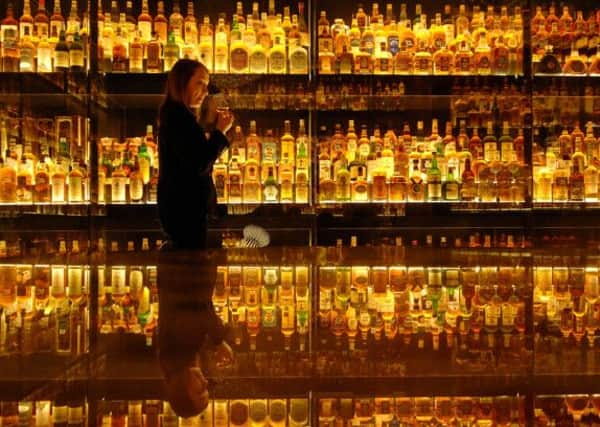Scotch industry aims to charm in budget cut drive


Research carried out by 4-Consulting on behalf of the Scotch Whisky Association (SWA) highlights the productivity and value-adding nature of the sector.
Its report, entitled The Economic Impact of Scotch Whisky Production in the UK, comes as the industry body calls on Chancellor George Osborne to introduce a 2 per cent cut on Scotch duty in his March Budget.
Advertisement
Hide AdAdvertisement
Hide AdSWA chief executive David Frost said the report showed just how significant the Scotch sector was to the wider UK economy.
“We want to get across that the Scotch whisky industry doesn’t just produce a great product, but is also a model industry with excellent productivity, employing a lot of people on good wages,” he said.
Frost pointed out that whisky workers are Scotland’s second most productive, after the energy industry. Wages reflect that, with the average distillery employee earning more than those in financial services.
The report also highlights whisky’s heavyweight contribution to Britain’s balance of payments. The industry exports more than £4bn annually and the UK’s trade deficit for 2013 would have been 16 per cent larger without it. Unlike most other exporting industries, whisky-makers source most of their materials locally and import very little.
SUBSCRIBE TO THE SCOTSMAN’S BUSINESS BRIEFING
• Get the latest business headlines from a variety of news sources emailed to your inbox each morning
But while exports have soared over the last decade, domestic whisky sales have declined by 20 per cent. The introduction of the duty escalator in 2008 has added 44 per cent to duty on spirits since then. Frost said there was always a danger a successful industry would be seen as a cash cow by governments, but the sector must be allowed to grow to maximise revenues for everyone.
He added: “Given the scale and impact of the Scotch whisky industry we believe the [UK] government should show its support. One way of doing so, in the short term, would be for the Chancellor to cut excise duty by 2 per cent in the Budget. It is unfair on the industry and consumers, and detrimental to the economy, that almost 80 per cent of the average price of a bottle of Scotch is taxation.”
Frost said that as the industry grows, it also needs infrastructure improvements in the Scottish Highlands and Islands where most distilleries are based.
Advertisement
Hide AdAdvertisement
Hide AdThe Scottish Government has plans for road improvements and better ferry links, but Frost said “the sooner it can be done, the better”.
The report shows the Scotch industry contributes nearly £5bn in “gross value added” to the UK every year. For every £1 million of value added, the industry generates another £520,000 across the UK, for example by spending on suppliers such as packaging to haulage.
The SWA claims that makes Scotch bigger than industries such as iron and steel, textiles, shipbuilding and computing. It is also larger than other UK food and drink sectors, including meat, dairy, beer and soft drinks.
INDUSTRY FIGURES:
Gross value to UK economy:
£5Bn
Jobs supported by industry:
40,300
Average pay of 10,900 employees:
£47,000
Total spent on Scottish suppliers:
£1.4bn